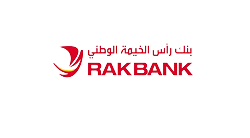Mastering personal finance requires a calculated approach to managing expenses and prioritizing debt repayment. In the UAE’s dynamic economic landscape, individuals can transform their financial health by implementing smart cost-cutting strategies and redirecting savings towards eliminating debt.
Analyzing Your Current Financial Situation
Understanding your financial landscape begins with a comprehensive review of income and expenses. Gather bank statements, track spending patterns, and create a detailed snapshot of monthly financial activities. Scrutinize every dirham spent, identifying areas where unnecessary costs can be minimized.
Categorize expenses into essential and non-essential spending. Essential expenses include housing, utilities, basic groceries, and minimum debt payments. Non-essential expenses encompass dining out, entertainment, subscriptions, and impulse purchases that drain financial resources.
Housing and Utility Cost Optimization
Accommodation represents a significant expense in the UAE. Consider negotiating rent or exploring more affordable housing options. Investigate shared living arrangements or relocating to areas with lower living costs. Energy-efficient practices can substantially reduce utility bills, freeing up additional funds for debt repayment.
Implement smart home technologies to monitor and reduce electricity consumption. Simple changes like using LED bulbs, unplugging electronics when not in use, and optimizing air conditioning settings can generate meaningful savings.
Transportation Expense Reduction
Transportation costs can consume a considerable portion of monthly budgets. Evaluate your current transportation methods and seek more economical alternatives. Carpooling, using public transportation, or opting for more fuel-efficient vehicles can dramatically cut expenses.
If you own a vehicle, perform regular maintenance to prevent costly repairs and improve fuel efficiency. Compare insurance rates annually and negotiate better premiums. Every dirham saved can be redirected towards debt repayment goals.
Dining and Food Expense Management
Food expenses often represent a hidden financial drain. Develop a strategic approach to meal planning and grocery shopping. Prepare meals at home, purchase groceries in bulk, and avoid frequent restaurant dining. Plan weekly menus, use grocery store loyalty programs, and compare prices across different supermarkets.
Limit takeout and restaurant visits to special occasions. Cooking at home not only saves money but also provides greater control over nutrition and portion sizes.
Subscription and Entertainment Audit
Review all recurring subscriptions and entertainment expenses. Cancel unused streaming services, gym memberships, and digital subscriptions. Many UAE residents accumulate multiple subscriptions without realizing their cumulative cost.
Explore free or low-cost entertainment alternatives. Public beaches, community events, and cultural activities in the UAE offer numerous cost-effective leisure options. Redirect subscription savings directly towards debt repayment.
Smart Shopping and Consumer Habits
Redesign your approach to shopping and consumer spending. Wait for sales, use cashback credit cards responsibly, and compare prices before making purchases. Avoid impulse buying by implementing a 24-hour waiting period for non-essential purchases.
Shop during promotional periods like the Dubai Shopping Festival or year-end sales. Purchase quality items that offer long-term value rather than frequent cheap replacements.
Digital Tools and Financial Tracking
Leverage digital banking tools and budgeting applications prevalent in the UAE. Many local banks offer comprehensive expense tracking and financial management features. These tools provide real-time insights into spending patterns and help identify additional savings opportunities.
Set up automatic transfers to debt repayment accounts immediately after receiving your salary. This approach ensures consistent progress toward financial goals before discretionary spending occurs.








